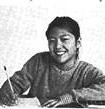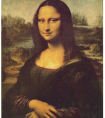I have always been interested in making things. When I was a child, I enjoyed painting, but I also liked malting things out of day. I won a prize for one of my-八年级英语
题文
| I have always been interested in making things. When I was a child, I enjoyed painting, but I also liked malting things out of day. I won a prize for one of my paintings when I was fourteen. That may be why I went to art school four years later. But I studied painting at first, not pottery. I like being a potter because I like to work with my hands and feel the clay. I’m happy working by myself and being near my home. I don’t like mass-produced things, for they are made by machines and are all the same. I think crafts(手工艺) are very important and crafts persons(手艺人)make things cleverly with hands. They make our lives colorful. When I left school, I got some money. I hope to become a full-time craftswoman. This workplace is small, but I wish tot: move to a larger one next year. 1. The writer went to the art school at the age of___________ 2. The writer is talking about her workplace_____________ A. unhappily B. hopefully C. seriously D. angrily 3. From the passage we know that the writer prefers A. a long way to work B. group work C. a small workplace D. something different 4. What does "mass-produced" mean in Chinese? 5. From the passage we are sure that the writer is a ________ (man/woman). |
答案
| 1. 18 2. B 3. D 4. 批量生产的 5. woman |
1.从第一段的最后一句话: I won a prize for one of my paintings when I was fourteen. 和第二段的第一句That may be why I went to art school four years later.可知作者是18岁上艺术学校的。 2. 从第二段的句子:I hope to become a full-time craftswoman可知作者认为很有希望。选.B 3. 从第二段的句子:I don’t like mass-produced things, for they are made by machines and are all the same. 可知作者喜欢不一样的东西。选D。 4.猜词题:从后面的 I don’t like mass-produced things, for they are made by machines and are all the same.可知是:批量生产的 5.从文章的句子:I hope to become a full-time craftswoman.可知作者是女性:woman |
据专家权威分析,试题“I have always been interested in making things. When I was ..”主要考查你对 人物传记类阅读,故事类阅读 等考点的理解。关于这些考点的“档案”如下:
人物传记类阅读故事类阅读
考点名称:人物传记类阅读
- 人物传记类阅读:
本类型选材主要是名人轶事。
人物传记的叙述线索也常常以时间为序。内容一般不是一个人的生活流水账,而是选取主人公一些重要的人生阶段或生活片段来展开叙述。
阅读时要把握主人公在此阶段发生的事对他本身或他人有什么重要的意义和影响。
考点名称:故事类阅读
故事类阅读:
文章一般描述的是某一件具体事情的发生发展或结局,有人物、时间、地点和事件。
命题往往从故事的情节、人物或事件的之间的关系、作者的态度及意图、故事前因和后果的推测等方面着手,考查学生对细节的辨认能力以及推理判断能力。
阅读这类材料时,同学们一定要根据主要情节掌握文章主旨大意,同时抓住每一个细节,设身处地根据文章内容揣摩作者的态度和意图,根据情节展开想象,即使是碰到深层理解题也可迎刃而解。- 故事类阅读注意:
初中生接触到的阅读材料大都是故事类。
阅读故事类的材料,应该抓住人物线索、地点线索、时间线索和情节发展线索。
特别注意的是,以上线索往往是并存的。因为情节的发展总是涉及到人物的变化、时间的推移、场景的变换等。
而阅读材料后的阅读理解往往会围绕这些内容设计一些事实类的理解题。
凡事实类的理解题都可以从阅读材料的表层文字中找到答案。
在阅读故事类短文时,应理解文章的深层含义,也就是它的主题。在此需要注意的是,现在的阅读理解题在测试事实类的理解题的同时,往往有一道推理类理解测试题.
- 最新内容
- 相关内容
- 网友推荐
- 图文推荐
上一篇:Mr. Smith is an English teacher. He comes from America. He has a daughter. Her name is Amy, and she is a good engineer in New York. Mr. Smith likes traveli-七年级英语
下一篇:Charles Dickens, one of the greatest English writers, was born in 1812 in a small town of England. When he was nine years old, the family moved to London. Ther-八年级英语
零零教育社区:论坛热帖子
| [家长教育] 孩子为什么会和父母感情疏离? (2019-07-14) |
| [教师分享] 给远方姐姐的一封信 (2018-11-07) |
| [教师分享] 伸缩门 (2018-11-07) |
| [教师分享] 回家乡 (2018-11-07) |
| [教师分享] 是风味也是人间 (2018-11-07) |
| [教师分享] 一句格言的启示 (2018-11-07) |
| [教师分享] 无规矩不成方圆 (2018-11-07) |
| [教师分享] 第十届全国教育名家论坛有感(二) (2018-11-07) |
| [教师分享] 贪玩的小狗 (2018-11-07) |
| [教师分享] 未命名文章 (2018-11-07) |






